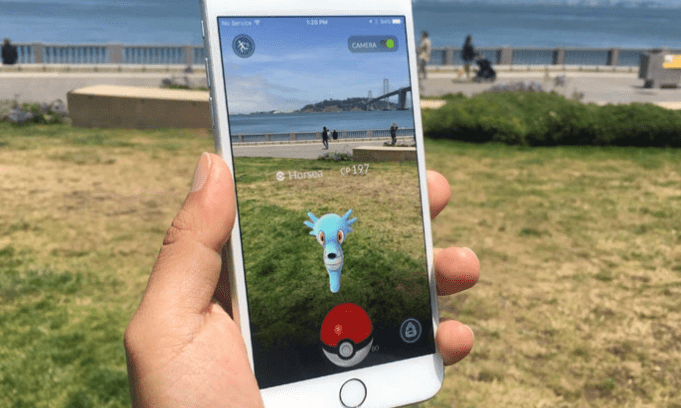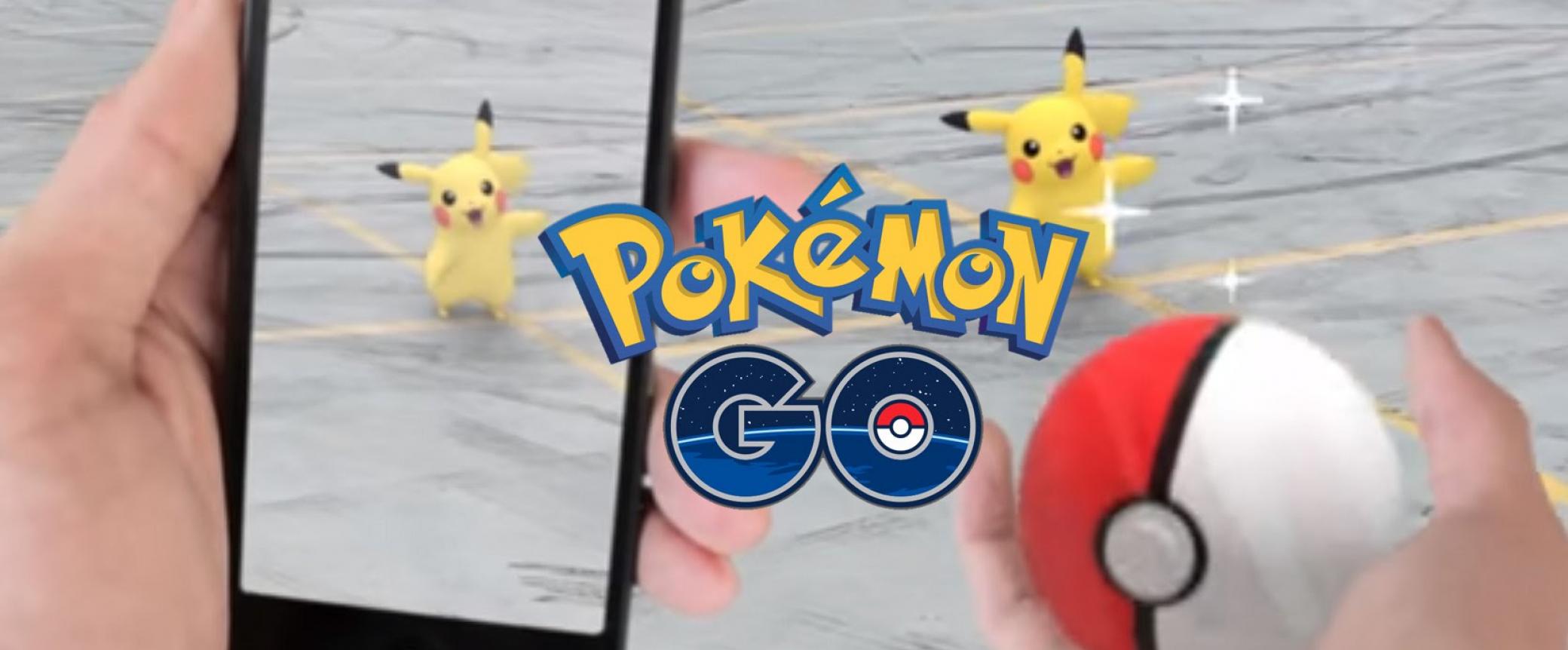By now you have probably heard of the hit mobile game Pokemon Go. It has already added 11 billion to the value of Nintendo. Players can find and capture virtual characters in the real world using Augmented Reality. The app is completely free to play but contains in app purchases. Users can purchase virtual currencty called "pokecoins" which will enable them to buy premium items like lure modules.
Lure modules enable pokemon to come to the player instead of the player having to go around searching for them. This is also a great way for businesses to potentially recieve more foot traffic to their store.

Real world locations in Pokémon Go serve as "Pokestops" for collecting in-game items and power-ups including "Pokeballs" or as "gyms" for battling the pokemon of other players. Right now, Pokestops and gyms are largely located at notable landmarks like parks and statues, but may expand to encompass retailer-sponsored locations.
Niantic Labs' previous app, Ingress, featured similar branded portals purchased by retailers like Jamba Juice and Zipcar. Advertisers who purchased portals through Niantic Labs paid on a "cost per visit" basis, and a similar tactic could be used in Pokémon Go.
John Hanke, chief executive of Niantic, which developed Pokémon Go in partnership with the Japanese games group, said "sponsored locations" would provide a new revenue stream, in addition to in-app purchases of power-ups and virtual items. [...]
Alongside in-app payments, "there is a second component to our business model at Niantic, which is this concept of sponsored locations", Mr Hanke said, where companies "pay us to be locations within the virtual game board -- the premise being that it is an inducement that drives foot traffic".
While not confirmed, code within the app has been discovered which suggests that a possible deal with McDonalds could be in the works.

Of course this isn't the only way Pokemon Go can make money. With the extremely large user base and mandatory google sign up (or pokemon form) there is a lot of valuable user information that could be sold to the highest bidder. Considering the demographics of the players, Niantic Labs and their investors could be sitting on a virtual gold mine.

